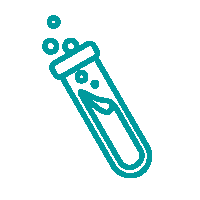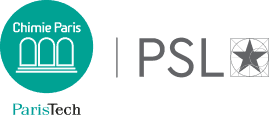Emergent phenomena in photosynthesis as an opportunity for improved yields and sensing of plants
Ladislav Nedbal
Institute of Bio- and Geosciences/Plant Sciences (IBG-2)
Forschungszentrum Jülich, D-52428 Jülich, Germany
Ladislav Nedbal studied theoretical solid-state biophysics, graduated from the Faculty of Mathematics and Physics, Charles University, Prague with Vladislav Čápek, and did his Ph.D. in the Institute of Microbiology CAS, Třeboň on photoinhibition of photosynthesis with Ivan Šetlík. During his postdoctoral work in U.Wageningen, Netherlands, University of Illinois, USA, and ENS Paris, France he continued studying the biophysics of photosynthesis. He founded a successful, globally acting company and designed several unique instruments, including fluorometers and bioreactors for the cultivation of algal biomass. As a member of the Mission Advisory Group, he participated in preparing the FLEX satellite that will be launched by ESA in 2024. He did his research as a senior scientist in various institutes in the Czech Republic, at the Hebrew University in Jerusalem, and, in the last decade, at the Forschungszentrum Jülich, Helmholtz Gemeinschaft in Germany. Currently he serves as a visiting professor at the Département de chimie, École normale supérieure, PSL University, Sorbonne Université, CNRS.
Photosynthesis is the major sun-powered driver of carbon, oxygen, nitrogen, and phosphorus global cycles that maintains the composition of our atmosphere and waters, stabilizes the global climate, and provides food and clean water for humankind. The green revolution in the 1960s temporarily reduced hunger in the underprivileged parts of the world by the use of new high-yielding varieties of crops and by the use of new fertilizers and agrochemicals. These enormous benefits brought, with a delay, new challenges that will be confronting generations in the 21st century: the global overpopulation and increasing per capita consumption is behind the global change that will cause a new divergence between rich and poor and between the generations. Photosynthesis producing more while significantly reducing cost and load on the environment may allow for more time for scientific, economic, and social adaptation in the rapidly changing world. Combining photosynthesis with photovoltaics, adapting plants to the changing climatic conditions, using urban environments for local production, photosynthesis-driven local nutrient cycles from wastewater to soil and crop are often seen as good opportunities.
I shall concentrate in my lecture on our quest for improving photosynthesis yields and for improved sensing of photosynthetic performance by controlled dynamic illumination. We found that the response to harmonically modulated irradiance is highly non-linear, an emergent phenomenon that will be illustrated by an analogy to a musical instrument. The non-linear response is, in part, due to the intrinsic regulatory controls within the plants that are modulated and dependent on the frequency of the sinusoidal light. Identifying frequencies that may lead to less regulatory losses for plant biomass, or higher production of, e.g., high-value secondary metabolites is one of our goals, together, with finding frequencies for remote sensing of regulation and plant stress in fields, greenhouses, and urban cultivation systems to be developed.
We have also shown that sensing photosynthesis in the frequency domain as a response to the periodic harmonically modulated light rather than during dark-to-light transition removes the need for dark adaptation and leads to a higher signal-to-noise ratio, both fundamentally important in field and greenhouses. By use of photosynthetic mutants, we have also proved that frequency-domain sensing can identify specific regulatory interactions and can narrow their kinetic characterization.In collaboration with ENS, we aim at falsification of present mathematical models of the reaction kinetics and at the development of new models that will unveil the potential of non-linear networks for increased photosynthetic yields.
Link : https://us02web.zoom.us/j/81520058748?pwd=VXVkalBFR0Z3Rm5CeU54NnEwYzZlQT09
Password : 083850
Meeting ID : 815 2005 8748


